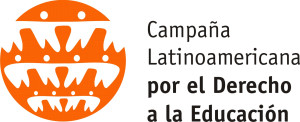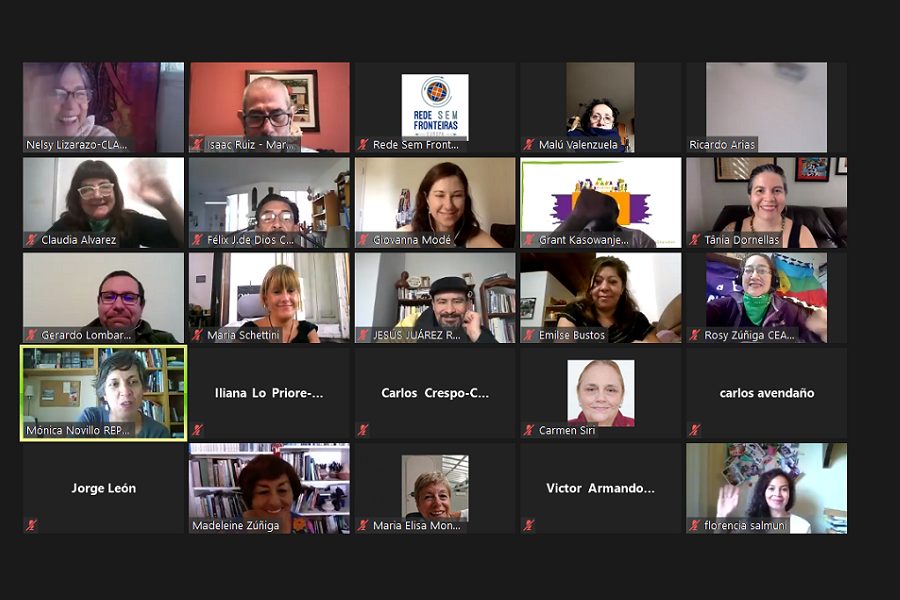
The Assembly “Towards a global agenda: the human right to education from the movements” took place at the World Social Forum 2021.
February 1, 2021With the participation of a hundred delegates from organizations that converge around education as a human right, the self-organized assembly “Towards a global agenda: the human right to education from the movements” was held this Saturday (30) in the framework of the World Social Forum (WSF) 2021.
The activity was organized by the Latin American Campaign for the Right to Education (CLADE), the Council for Popular Education in Latin America and the Caribbean (CEAAL), the Pressenza Agency, the Espacio sin Fronteras Network, the Global March against Child Labour, the Global/Local Network for Quality Education, the Popular Education Network of Women (REPEM), the World Organization for Early Childhood Education (Omep) and Fe y Alegría.
Opening the dialogue, Grant Kasowanjete, Global Coordinator of the Global Campaign for Education, highlighted the need to ensure increased funding for public education in the countries of the global South as one of the main challenges to realizing the human right to education.
She pointed out that “for every dollar of aid that arrives from the global North, ten dollars are taken away through foreign debt and other mechanisms”, which erodes public coffers and underfunds the system, since 90% of education budgets come from own resources.
Nelsy Lizarazo, from the general coordination of CLADE, emphasized the deepening as result of the pandemic, of pre-existing inequality gaps and a refinement of stratification and exclusion from the educational pathway in social sectors lacking support, connectivity or adequate equipment, highlighting rural populations, migrants, indigenous people and people with disabilities, among others.
At the same time, she indicated how governments have handed over millions of dollars and data to corporations, information that will feed the already enormous business of these technology multinationals. She also added that the emergency has meant a greater precariousness of the teaching condition with budget reductions, salary reductions, a heavier workload, to which is added the psychological pressure produced by the effort of educators to respond to and overcome the difficulties posed by the technological and pedagogical challenge of distance education.
On the basis of these characterizations, the question of the learning, strengths and challenges identified in this course was launched as a trigger.
In a first round of interventions, key aspects such as the lack of infrastructure and the need for community technological development independent of large corporate platforms, the damage caused by the exclusion of millions of children from the educational process or the dysfunctionality of homogeneous educational planning in the face of the complexity of diverse realities were pointed out.
Among the lessons learned, the imaginative capacity of the educators who managed to overcome adverse conditions, the propensity for knowledge of children beyond the institutional framework, the importance of dialogue and joint work between school, parents and community, the role of community education together with the favorable impact of progressive political projects in the face of the failure of the neoliberal system were valued.
The assembly continued its collective reflection on the priority agenda of the regions and what is common to these agendas.
In a fluid and propositional dialogue, the participants indicated that the struggle must lead first and foremost, in the face of the prevailing violence in different territories, to guaranteeing the right to life. Likewise, to overcome inequality at educational levels within the social system, to offer safe educational spaces, free of aggression and abuse for girls and boys, and to strengthen a new non-predatory social relationship.
The need to promote a political-pedagogical revolution in the face of neoliberal agendas was also pointed out, as well as the need to strengthen intergenerational dialogue, especially in relation to older adults and the importance of implementing Comprehensive Sex Education as a mechanism to overcome sexual violence against girls, adolescents and women in general.
On the other hand, global priorities included the struggle to ensure that the right to education is not minimized, the defense and strengthening of the public system and counteracting the fallacy that private systems are better, overcoming inequality and discrimination in education, and guaranteeing adequate funding for education from a human rights perspective.
When analyzing possible cross-cutting themes for common action, the indivisibility of human rights was emphasized and, consequently, it was proposed to promote broad alliances by interweaving struggles with the agendas of other rights while contributing to strengthening social organization and mobilization. The importance of continuing to generate knowledge by connecting it with messages and campaigns that mobilise demands was highlighted.
In the same way, a suggestion was made in the debate for a greater exchange on the modalities used to make good practices visible and to achieve effective impact in relation to the demands put forward.
Among the proposals for joint action, the creation of an observatory, the promotion of liberating education in the presence of Paulo Freire’s centenary, the opening of spaces for the expression of the new generations and the idea of Good Living were suggested. Political action is needed to rethink education in terms of feminism and socio-economic equity, and to articulate the forces to overcome not only the physical but also the mental illness from which humanity suffers.
Finally, the Assembly approved a text to be proposed and included in the final declaration of the World Social Forum 2021.
“In the framework of this WSF 2021, we join the agenda of transformation at the global level, articulated to the various fields of social struggle and rights, recognizing the catalytic role of education. The pandemic highlighted the historical inequalities within and outside education systems, affecting women, girls, people with disabilities, refugees and migrants, indigenous communities, rural populations, among others. It also highlighted the digital divide and government responses to it, as well as the need to build a digital sovereignty strategy.
Through strengthened public education systems, it is necessary to resist the threats of fiscal austerity policies, national indebtedness and cuts in education funding, as well as the multiple trends of privatization. From early childhood through to youth and guaranteeing adult education, it is essential, in the post-pandemic period, to rethink the meaning and purpose of education, in the search for the rights of peoples and overcoming patriarchy. A heterogeneous and intercultural model, transformative and inclusive; based on dialogue and safe for communities; valuing their knowledge and local knowledge, as well as collaboration in solidarity and commitment to the protection of life”.
Video:
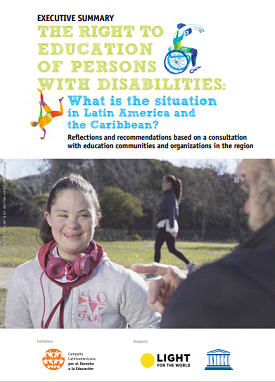
The right to education of persons with disabilities: What is the situation in Latin America and the Caribbean? (Executive Summary)
April 29, 2020The document was prepared by CLADE, with the support of UNESCO’s Regional Office for Latin America and the Caribbean and Light for the World International, as a contribution to the regional monitoring and implementation of the UN’s Convention on the Rights of People with Disabilities’ Article 24. As part of the research process, an online consultation was promoted, with 216 responses from civil society organizations, universities, teachers, students and relatives of persons with disabilities from 19 countries in the region.
Descargar
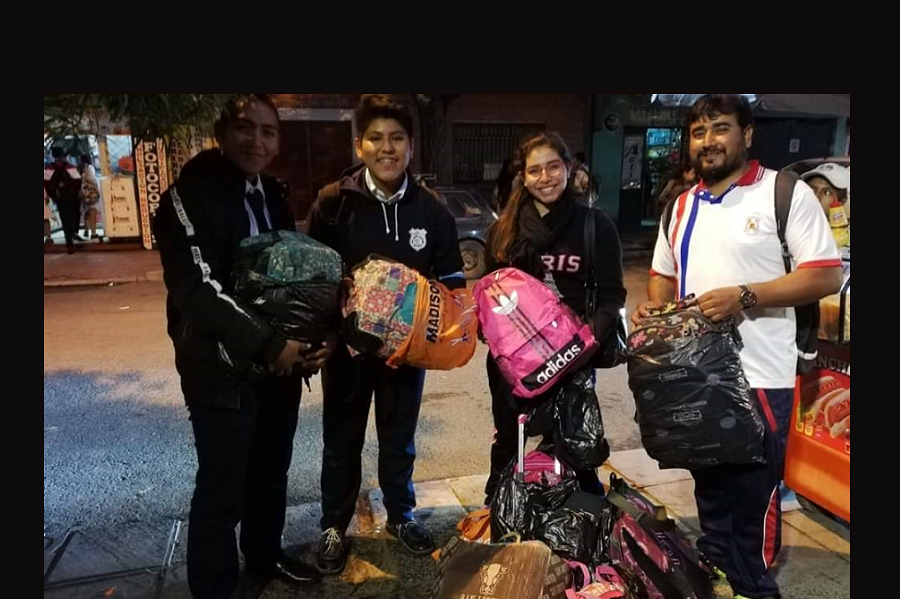
Inspired by his experience of CLADE’s initiative, young man starts campaign in Bolivia
March 9, 2020“The campaign #TheEducationWeNeed had the positive change of encouraging us students to insist in being heard all the time, and even more when it is much more strongly needed and much more important, because education is power”, affirmed Gabriel Villarpando, a final year Law student and a member of the Bolivian Campaign for the Right to Education (CBDE), at the region of Tarija, Bolivia.
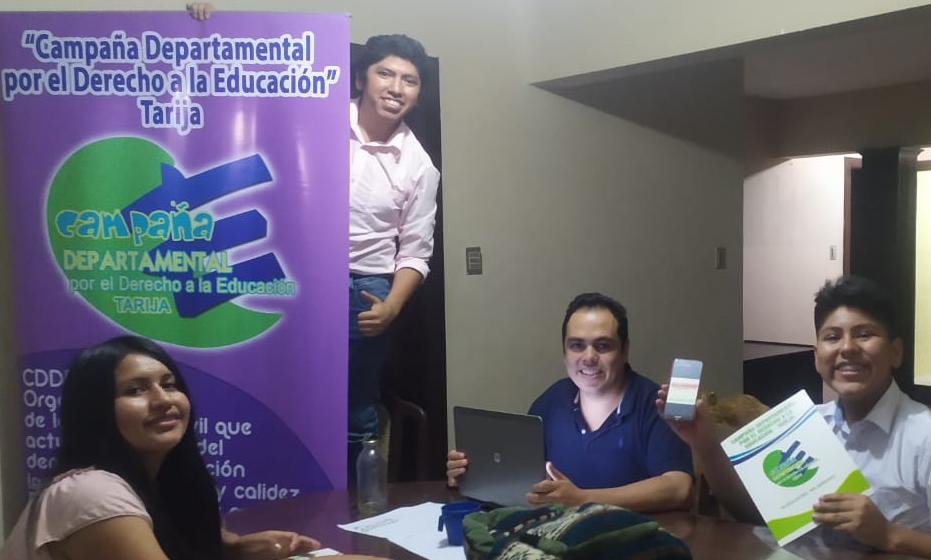
24-year-old Gabriel Villarpando was one out of more than 50 young people and adolescents that took part in
#TheEducationWeNeed for the world we want initiative, carried out between Oct. 2019-Apr. 2020, with the purpose of encouraging adolescents and youths from Latin America and the Caribbean to share their expectations and opinions on the right to education.
After experiencing #TheEducationWeNeed, Gabriel started the #Mochila2.0 [#Backpack2.0] campaign, aimed at fostering conversations on the right to education and, in turn, collecting backpacks that stopped being used and distributing them to students who need them.
The collected backpacks will be distributed next week to rural communities and [people] in situation of vulnerability in the region of Tarija and then the students receiving these donations will be interviewed and filmed, expressing their opinions and suggestions on the right to education.
“The education we need is emacipatory, equitative and inclusive education. An education that can have an effect, that is accessible, that is, that education exists everywhere”, affirmed Villarpando.
In the conversation below, Gabriel explains the #Mochila2.0 campaign and comments on his experience of joining #TheEducationWeNeed initiative and on the importance of emancipatory education for adolescents and youths.
¿What is #Mochila2.0 iniciative?
Gabriel Villarpando – This initiative consists in the possibility of collecting backpacks no longer used, to be recycled so other people going to school can use them.
The idea is to encourage students and parents to donate backpacks that are being put aside. Initially, we collected them and soon we will be donating them to encourage indigenous land workers who are out of the city, who live in rural areas [to go to school]. For them it is much more difficult to get new school materials every year, such as, in this specific case, backpacks. We want to bring this campaign to encourage students from indigenous peoples in the fields, starting with the students from the people Weenhayek.
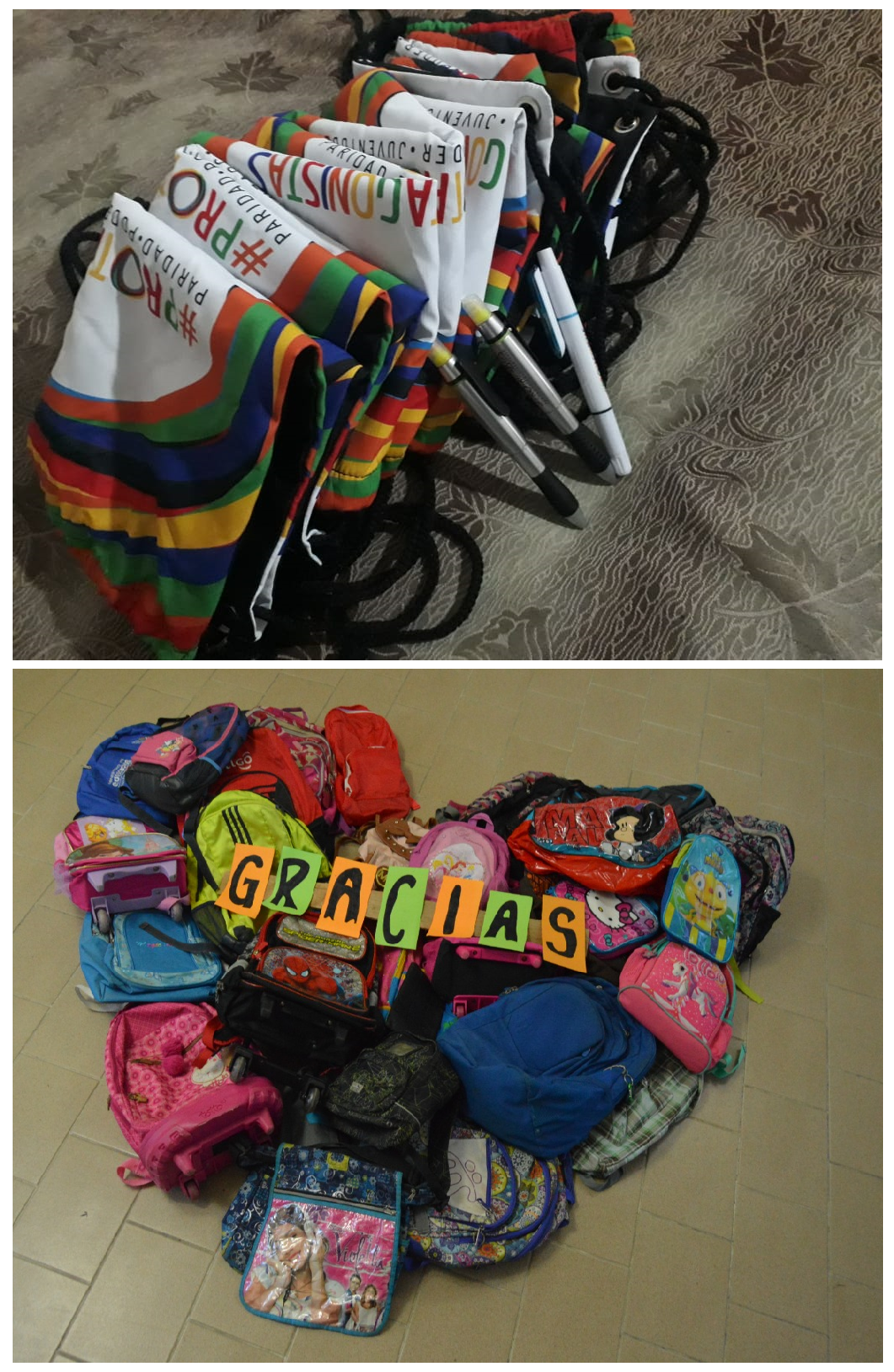
How is it evolving?
Gabriel Villarpando – We shared a call through the education centers that joined the campaign or that are working with us as a team and also through the secondary students’ federation. Besides, we have a group working as the initiative’s coordination team, named Unidos en Acción [Acting Together].
This campaign was officially launched in February 8, with [the participation of] education centers.
Where does such an idea come from?
Gabriel Villarpando – This idea comes from thinking how useful such a school material, the backpack, can be for our students, because we need to carry our notebooks, pencils and other school materials everyday to our education centers. The backpack helps us to transport all our materials much more easily.
Everything really came from this thoughs, because for indigenous peoples it’s very difficult to be have the conditions to afford or renew their school material every year, in this case the backpack, since they live in rural areas and there is not much commerce there. They also have to go to the city and many of these families are really humble, and if they manage to get to the city —what doesn’t happen so frequently—, it is for buying essential goods, such as food and other groceries.
Many students from indigenous peoples don’t even have a backpack, many carry their notebooks and pencils in their hands. We saw a problem and a necessity is this regard, and we wanted to create the campaign #Mochila2.0 to encourage these students [to go to school].
In what moment was it connected to #TheEducationWeNeed for the world we need for the world we want campaign?
Gabriel Villarpando – Well, the campaign is actually connected to the concept of promoting the full exercise of the right to education as a human right and to officialize and promote public policies which can cooperate to the generation of a change towards the education we need, opening the way to having a better world as a result.
This is why we encourage the donation of the backpacks put aside, being used again these goods can generate a change so students can keep going to their school centers, alleviating the difficulties in their school life, especially considering they live far away or in the rural area. In that sense, our campaign wanted to remind the 30th anniversary of the UN Convention on the Rights of the Child [celebrated on November 20, 2019].
For you, what is the #EducationWeNeed for the world we want?
Gabriel Villarpando – The education we need is emacipatory, equitative and inclusive education. An education that can have an effect, that is accessible, that is, that education exists everywhere, giving priority to schools in rural areas, because many students walk for hours to attend their education centers. So this is why it has to be inclusive, accessible and this is the education we need.
Do you consider to develop other activities in regards to the same subject or initiative?
Gabriel Villarpando – Of course we do, because the most important is that this campaign setting will result in the possibility of articulating and advocating to our authorities, people, decision-makers to generate public policies in benefit of the defense of the right to education.
Could you identify any positive change after having taking part in the campaign #TheEducationWeNeed?
Gabriel Villarpando – Of course I can. It was very important to get to listen to the voices of the [education] leading actors, such as the students, and the empathy they generated in the process of sharing their experiences, their livingness, to demand or socialize the education we need for the world we want.
“The campaign #TheEducationWeNeed had the positive change of encouraging us students to insist in being heard all the time, and even more when it is much more strongly needed and much more important, because education is power”
The role it plays to generate public policies or to demand that this right is NOT vulnerated is really important. It even encourages us students to get involved in this advocacy plan to be developed, with all our demands and needs in regards to the field of education
Especially, in this stage of transition or political crisis Bolivia is going through, around the new elections for our country’s president.
What we see is the #TheEducationWeNeedcampaign had the positive change of encouraging us students to insist in being heard all the time, and even more when it is much more strongly needed and much more important, because education is power”
Would you like to add anything else?
Gabriel Villarpando – This campaign was officially launched on February 8, with [the participation of] education centers. Nevertheless, I hope you can join this campaign, disseminating it and sharing it with your student friends or colleagues at all levels, so we can reach more people and also encourage other civil society organizations, coalitions or platforms in defense of education to join and replicate this kind of initiative.
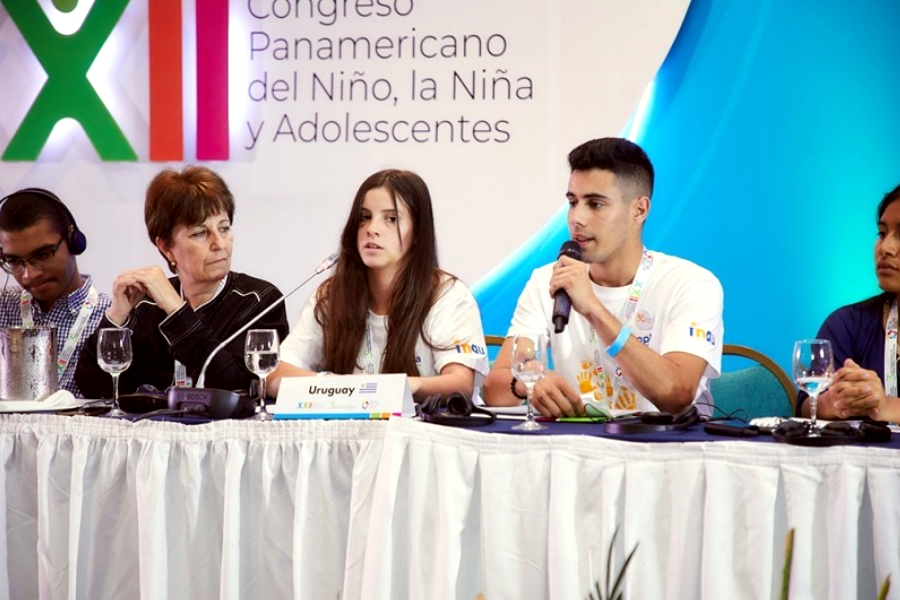
What are Latin America and Caribbean students’ thoughts on education and other human rights?
November 11, 2019Overcoming discrimination and violence, the right to play, art and recreation, gender equality and the right to comprehensive sexuality education and to participate in the debates on public policies affecting them: these were some of the demands shared by boys, girls, adolescents and youths during the 22nd Pan-American Child Congress and the Third Pan-American Child Forum that were held from Oct. 29-31 in Cartagena (Colombia).
(more…)
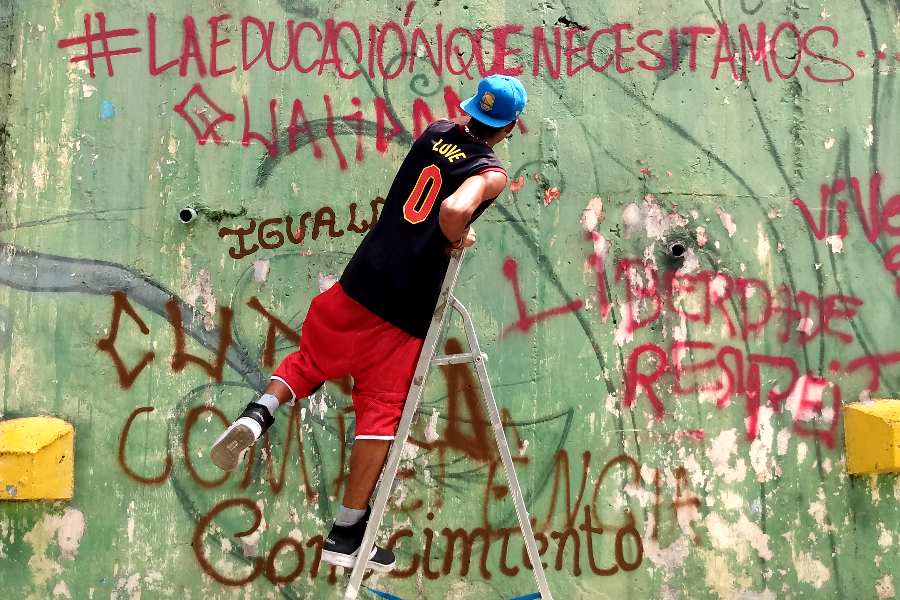
Students from Sao Paulo discuss the education they need for the world they want
November 4, 2019initiative “The education we need for the world we want”, CLADE was last Thursday, Oct. 31, at the Public School Professora Maria Augusta Corrêa, in Sao Paulo, Brazil. This public education center is one of the most diversified in the city, with a high percentage of migrant students, especially from Bolivia and Haiti.
(more…)
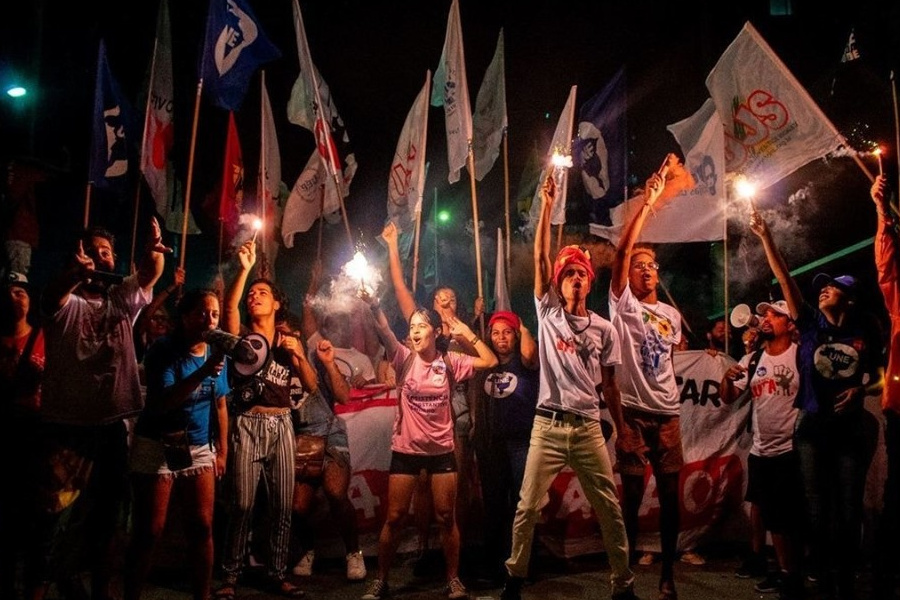
Brazil: Students, teachers unions and civil society lead the struggle for the right to education
August 16, 2019On this World Humanitarian Day, we affirm that the student, education professionals and civil society-led mobilizations that took place across the country on August 13 are a strong reaction and a sign of resistance to a government that has been making great strides towards a not desired past.
This moment is one of a huge crisis in the Brazilian democracy. Not that we haven’t experienced crisis in the past, but what we have witnessed since the impeachment of president Dilma Rousseff in 2016 is the country’s democratic foundations and institutions being weakened and a backsliding in social achievements. We had never advanced so far in strengthening democracy and advancing social rights, and we had never seen setbacks at such a rapid pace.
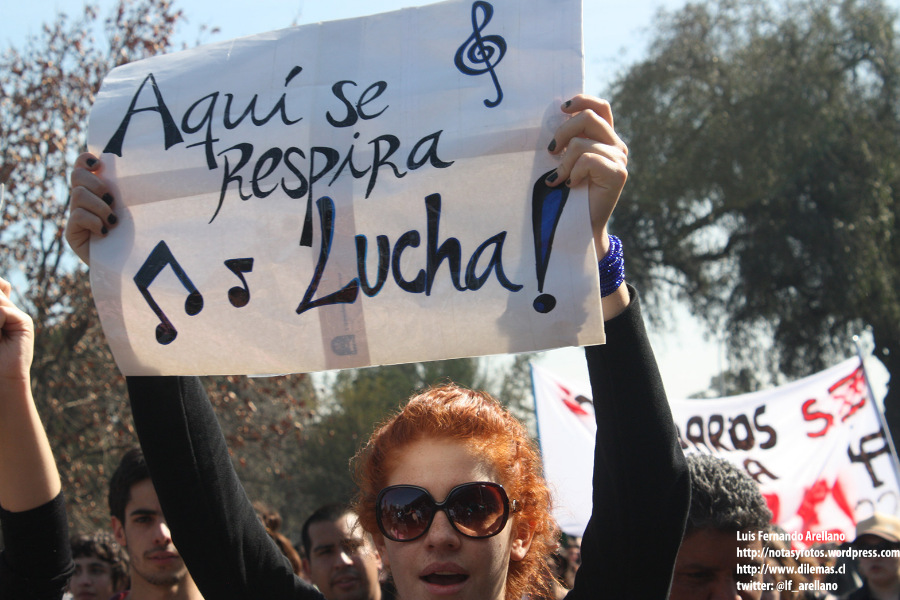
Youth from Latin America and the Caribbean transforming education
August 12, 2019In 1999, United Nations General Assembly appointed August 12 as the International Youth Day, an annual celebration aimed at promoting the role of youth in processes of change, as well as raising awareness on the challenges and contexts faced by young people.
(more…)
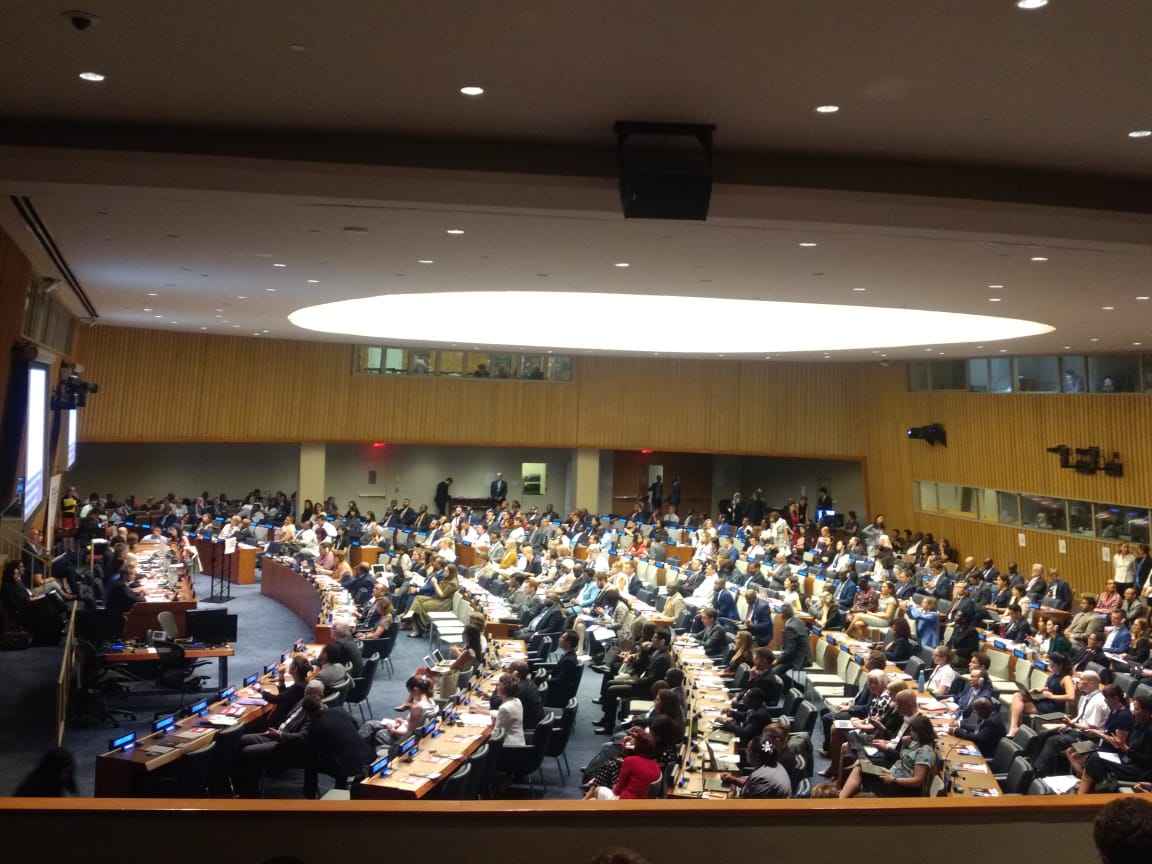
SDG 4 Review of Chile and Guatemala at the UN
July 17, 2019At the UN High-Level Political Forum, the platform to follow up SDGs across the world, Chile and Guatemala presented their voluntary national reviews about the implementation of this agenda. Four countries from Latin America and the Caribbean volunteered to participate in the 2019 review, reporting the actions taken for the achievement of the SDGs: Chile, Guatemala, Brazil and El Salvador. However, on the eve of the High-Level Political Forum, the last two countries announced that they would not participate in the review.
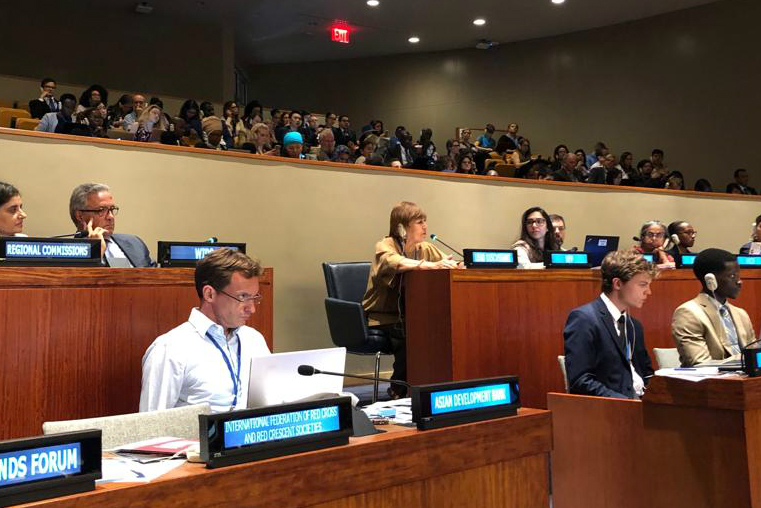
Review of SDG 4: “Quality education must be centered on people and their dignity”
July 10, 2019Yesterday, the review of the Sustainable Development Goal number 4 (SDG 4), about education, was initiated at the United Nations, within the framework of the High Level Political Forum, which takes place until July 18 in New York, USA.
Three hours of debate were dedicated to look at the situation of the right to education worldwide with the participation of representatives from different countries, as well as from different sectors of civil society, among them indigenous people, children and youth, Lesbian, Gay, Bisexual, Trans and Intersex (LGBTI) people and persons with disabilities.
“The diversity of civil society representatives and interventions emphasized an intersectoral perspective of education, which represents a fundamental advance comparing to the debates on the 2030 Agenda that took place in previous years,” said Camilla Croso, general coordinator of the Latin American Campaign for the Right to Education (CLADE), which accompanies the event in New York.
The participation of GCE vice president and coordinator of the Peruvian Campaign for the Right to Education (CPDE), Madeleine Zúñiga, was another highlight of this first panel on SDG 4. In her speech, she pointed out that “education is a powerful instrument to transform lives and, therefore, transform the world; not any education, but one that promotes sustainable development, social justice, truly democratic societies, global citizenship and the culture of peace that the whole world requires.”
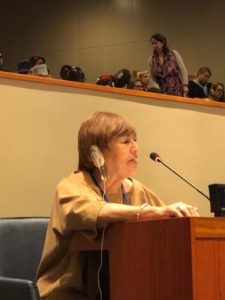
Madeleine Zúñiga emphasized that a quality education must be centered on people and their dignity, assuming the multiple dimensions of diversity to design models and relevant strategies according to the characteristics of different societies. She added that it is fundamental to ensure the right to lifelong education and solid teacher training, within the framework of human rights and comprehensive and muti-sectorial educational attention; as well as bigger and better investment in public education.
“That requires a substantive improvement of tax rules and a strong political will to fight against tax evasion and avoidance, and to achieve tax justice, as well as to face the increasing privatization, an unregulated process that is allowing profit interests in education. Low-cost and low-quality private schools, with poorly paid teachers, not only violate the right to education, but also deepen the inequalities,” she said.
Download the intervention of Madeleine Zúñiga (In Spanish)
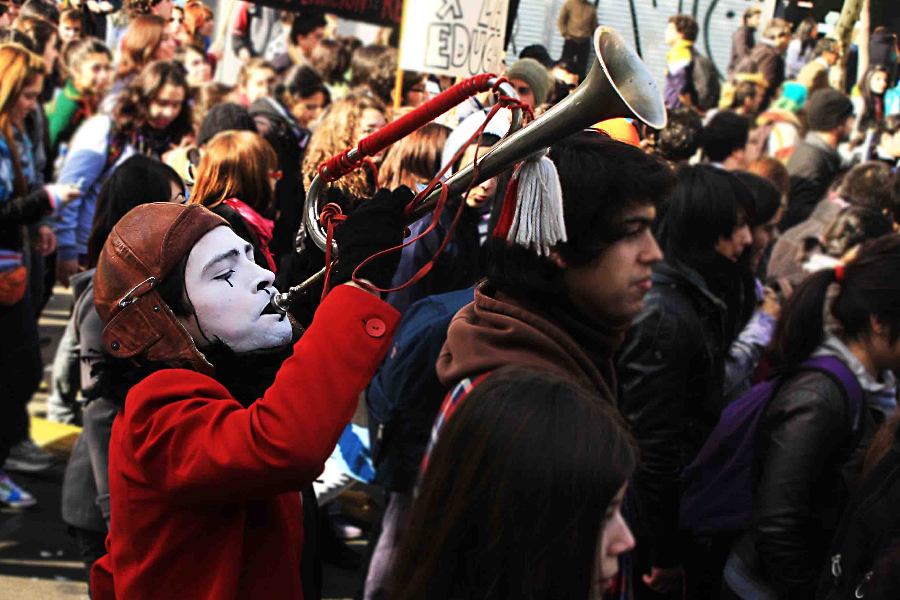
In new publication, CLADE shares experiences, strategies and lessons learned on the fight for the right to education
The Latin American Campaign for the Right to Education (CLADE) launches the publication “Civil Society Advocacy for the Human Right to Education: Stories and Lessons Learned from Latin America and the Caribbean – Volume 3”.
The document is available:
In this volume, members of CLADE tell their experiences on the fight for the right to education: the challenges, advances and lessons learned, the strategies and recommendations that remain for other civil society movements and organizations. It presents cases of advocacy, communication, research and mobilization in 10 countries of Latin America and the Caribbean, as well as 3 regional experiences, driven by CLADE and 2 regional networks that are members of the Campaign: Espacio sin Fronteras and ALER.
The document is the result of a permanent effort by CLADE, to record and provide visibility to the journey of its members in their advocacy and capacity building efforts; and, on the other hand, to promote the reflection on their success and mistakes, in a process of self-evaluation and capacity building by the network.
“In times when we witness a growing democratic weakness in Latin America and the Caribbean, when laws are passed to hinder the right to demonstration and social participation, when social movements, activists and students are persecuted and criminalized, and there are so many restrictions to participation, it is worth showcasing civil society action and its positive impact on education policies,” says CLADE.
The Campaign distributed the publication, during its participation in the High-Level Political Forum, which takes place until July 18 in New York, with an emphasis on reviewing the status of compliance with Sustainable Development Goal 4, related to education.





